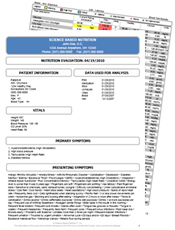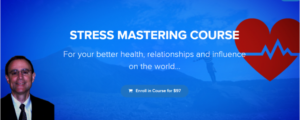“It is estimated that as many as 3.8 million concussions occur in the USA per year during competitive sports and recreational activities; however, as many as 50% of the concussions may go unreported.”1
A concussion is considered a mild form of a traumatic brain injury. This happens when there is trauma (bump or blow) to the head during a sporting event or during a fall. During the impact, the brain is pushed in a back and forth motion against the skull. Generally speaking, a concussion is not a life-threatening injury, but the side effects can be very serious.
Depending on the type of injury, signs and symptoms of a concussion have the potential to show up immediately. This occurs most often in high impact sports or car accidents. Often times, however, the symptoms can take up to 24 hours to a week before they appear in lower impact injuries. Some injuries may develop into Post-Concussion Syndrome. A diagnosis of Post-Concussion Syndrome is considered if 3 or more of the following symptoms have occurred or are still occurring:
- Poor concentration
- Mood changes
- Irritability
- Poor word recall
- Trouble sleeping
- Headaches
- Dizziness
- Trouble with noise or lights
Why is it important to supplement with nutrition after a concussion has occurred?
A concussion is not just a physical injury but can also be a metabolic injury. Following a concussion, it is vital that the brain make energy to not only function, but to heal itself. The brain produces a natural chemical called brain-derived neurotrophic factor (BDNF). It is important to reset and support BDNF as it helps damaged neurons recover. 2 For the best results, it’s important to start a nutritional support program as close to the injury date as possible. Listed below are recommendations for post-concussion nutritional support:
- Protein – Multiple studies have shown that by adding 1 gram of protein for every kilogram of your body weight can help support the healing and repairing process. 2,5
- Creatine – Is used as an energy support. One study used to support the use of creatine for post traumatic brain injury demonstrated the following, “children and adults with traumatic brain injury (TBI), six months of creatine supplementation of 400mg/kg bodyweight appears to significantly reduce the frequency of headaches (from 93.8% to 11.1%), fatigue (from 82.4% to 11.1%), and dizziness (from 88.9% to 43.8%), relative to an unblinded control.” 6
- Choline – supports the formation of brain synapses and development. 7
- Magnesium – studies show that magnesium in the brain can drop up to 50% within the first 5 days of a traumatic brain injury. This in return may cause inflammation due to the inability produce energy to repair and restore function. 7
- Zinc – After a traumatic brain injury, there is a potential increase in urinary zinc loss. Intake of Zinc has been linked to improved behavioral outcomes. 7
- Curcumin – helps reduce neuroinflammation and linked to improved cognitive function.8
- Resveratrol– helps reduce inflammation and increase cerebral blood flow. 7
- Vitamin D – is neuroprotective and supports the immune system. 2
- Fish Oils – Omega 3 Fatty Acids, particular DHA are essential for brain development and function. A study on American Football players demonstrated lower makers for brain damage, when supplementing with 2 grams of DHA daily. 8
- Coenzyme Q10 – helps reduce neurodegeneration and increases blood supply to the brain.
- Magnesium and Vitamin B2 – are linked to reduction of post-concussion headaches.
Not sure where to start or need further advice? If you or a loved one have had a concussion – it is never too late to reach out for help. It is important to start with a comprehensive blood analysis and hair tissue analysis to check on the body’s foundation as a whole. This can help determine what you need to be consuming from a dietary and supplement standpoint from the list above. It can also help indicate if there is something you need to be avoiding. What has worked for someone you know, may be completely different than what will work for you. Contact us today to get started and improve your body safely and naturally.
Words Cited
- Harmon, Kimberly G., et al. “American Medical Society for Sports Medicine Position Statement.” Clinical Journal of Sport Medicine, vol. 23, no. 1, 2013, pp. 1–18., doi:10.1097/jsm.0b013e31827f5f93.
- Silverman, Robert. “How To Use Nutrition To Speed Your Concussion Recovery.” Mindbodygreen, Mindbodygreen, 19 Nov. 2016, www.mindbodygreen.com/0-27480/how-to-use-nutrition-to-speed-your-concussion-recovery.html.
- Bozic CR, et al. Neurogenic amplification of immune complex inflammation. Science, 1996;273:1722.
- Davis KA, et al. Complement deficiency and immune complex diseases. Semin Immunopathol, 1994;15:397.
- Silverman , Robert. “Feed a Concussion: Speedy Nutrient Support Offers the Hope of Better Healing.” Dynamic Chiropractic – Chiropractic, News, Articles, Research & Information for Chiropractors – Find a Chiropractor, 15 June 2015, www.dynamicchiropractic.com/mpacms/dc/article.php?id=57406.
- “Concussion Post 14 – Creatine.” Doc Edwards Health & Fitness, 7 Apr. 2016, docedwardsfitness.com/concussion-post-14-creatine/.
- Swanson , Alex. “The Best Supplements for Concussion Recovery.” TheHealthBeat.com, 14 June 2014, thehealthbeat.com/how-nutrition-can-help-concussions/.
- Tropf, Allison. “Nutrition Supplementation and Concussions.” ALT Performance Nutrition, 28 Dec. 2018, www.altnutrition.net/nutrition-supplementation-and-concussions/.
9. Kalayci, M., Unal, M. M., Gul, S., Acikgoz, S., Kandemir, N., Hanci, V., … & Acikgoz, B. (2011). Effect of Coenzyme Q 10 on ischemia and neuronal damage in an experimental traumatic brain-injury model in rats. BMC neuroscience, 12(1), 75.
References for this newsletter as well as previous newsletters may be found on our website. The information has not been evaluated by the FDA and is not intended to treat, cure, or prevent any disease.




